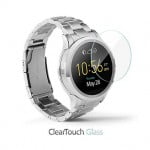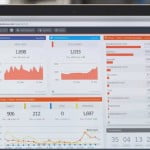
In complex manufacturing ecosystems like aerospace and automotive, there is a hierarchical structure through the supply chain that runs from companies that produce the raw materials all the way to the companies that sell products with brands that we know. Today we find brands like Ford, GM and Boeing at the top of that food chain. But as we make the transition from vehicle ownership to automated mobility services over the next couple of decades, some brands like Fiat Chrysler may well be relegated to becoming tier one suppliers to the likes of Waymo and Apple.
In auto industry parlance, the brands that we buy and drive are known as the original equipment manufacturers or OEMs. They handle the bulk of design, integration, manufacturing and distribution of new vehicles. Back in the days when Henry Ford built the massive Rouge plant in Dearborn, Mich. these OEMs were highly vertically integrated, bringing raw materials like iron ore, lumber, leather hides and raw rubber into one end of the plant and shipping out finished cars from the other.
Over the last several decades, OEMs have off-loaded more of the component development and production to several tiers of suppliers. At the top of that stack sit the big tier ones like Bosch, Continental, Delphi and ZF. These companies buy materials and parts from lower tier suppliers and deliver finished sub-systems like wiring harnesses, driver assists, transmissions and more directly to the OEM’s final assembly lines.
However, as the automated vehicle comes ever closer to reality, it may not be the OEMs that provide the transportation brands that consumers pay for. Many of the biggest OEMs are actively developing automated driving and the related mobility services that will be required for deployment. Companies like GM, Ford, Nissan-Renault, Volkswagen, BMW and Mercedes-Benz are all well positioned to run mobility services with automated vehicles they build and they already have the manufacturing, distribution and service infrastructure through their dealer networks.
Technology companies like Waymo and Apple have none of that. What they have is a lot of really smart engineers and scientists developing automated driving systems that consist of very powerful compute hardware, sophisticated sensors and artificial intelligence software. Waymo (and its prior incarnation as the Google self-driving car program) has been using mostly off-the-shelf vehicles from Toyota and now Fiat Chrysler for its development. They also built a test fleet of low-speed electric pod cars dubbed “Firefly” for the development program. The Firefly is now being retired and Waymo is sourcing 600 Chrysler Pacifica hybrid minivans from FCA for ongoing development.
Waymo officials have acknowledged that they are not really interested in getting into the car building business. They are focused entirely on collecting and processing the data required to maneuver a vehicle around its environment safely and efficiently. Thus the partnership with FCA to supply vehicles. FCA designed a custom wiring harness for the Waymo vans that enables Waymo to plug in their sensors and computers without additional modification to the vehicle. They ship those vans from the Windsor, Ontario factory where they are built to a Waymo shop in Michigan for final assembly of the automated driving hardware.
Once Waymo takes possession of the Pacificas, FCA’s involvement is done as Waymo continues with development of its system. For this program, FCA has moved from being an OEM to a tier one supplier to Waymo. Waymo will deploy its vans through service platforms that it is developing in-house along with Lyft and potentially other providers, but Waymo will retain ownership of the vehicles along with control of all the data they generat
[Source”timesofindia”]











